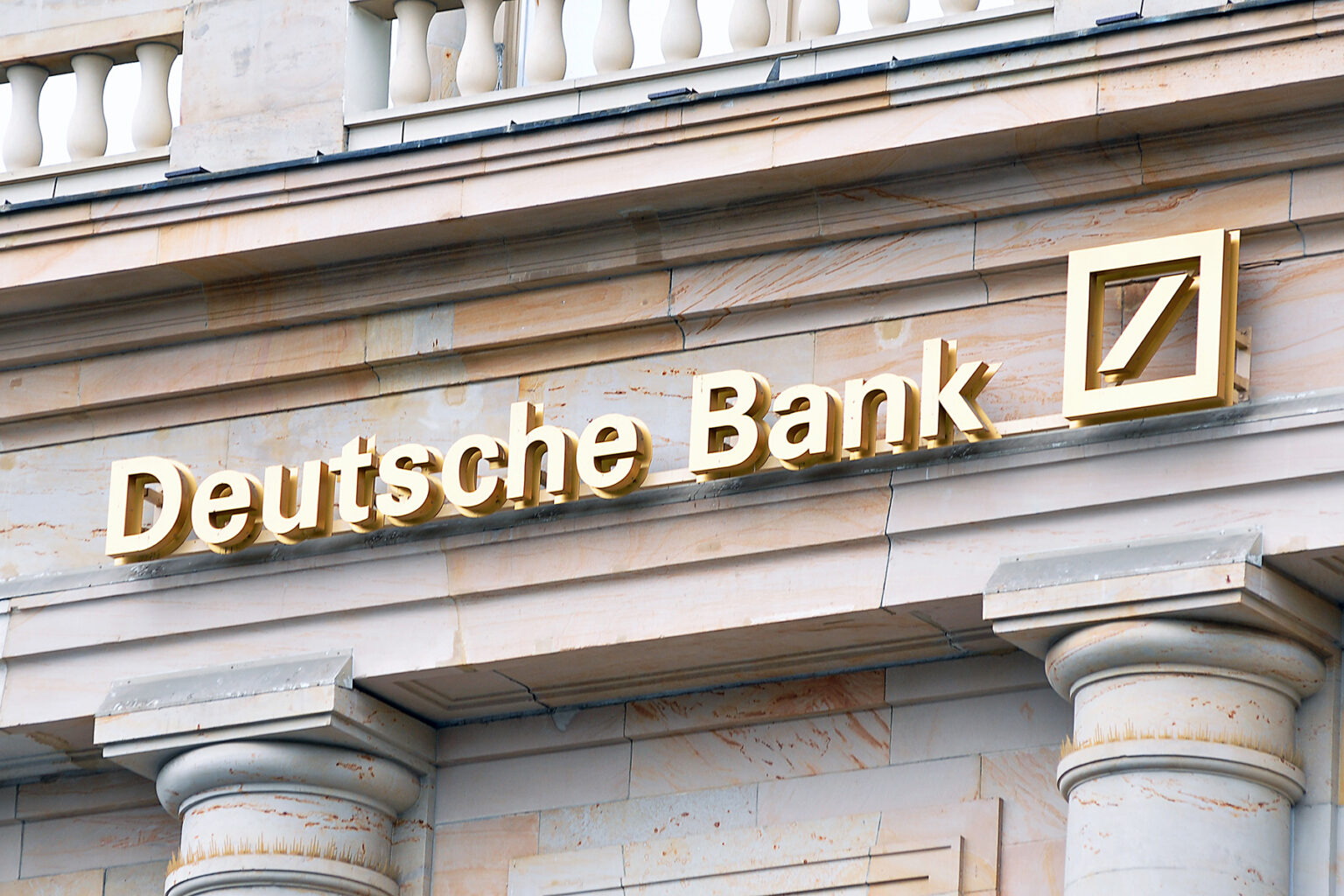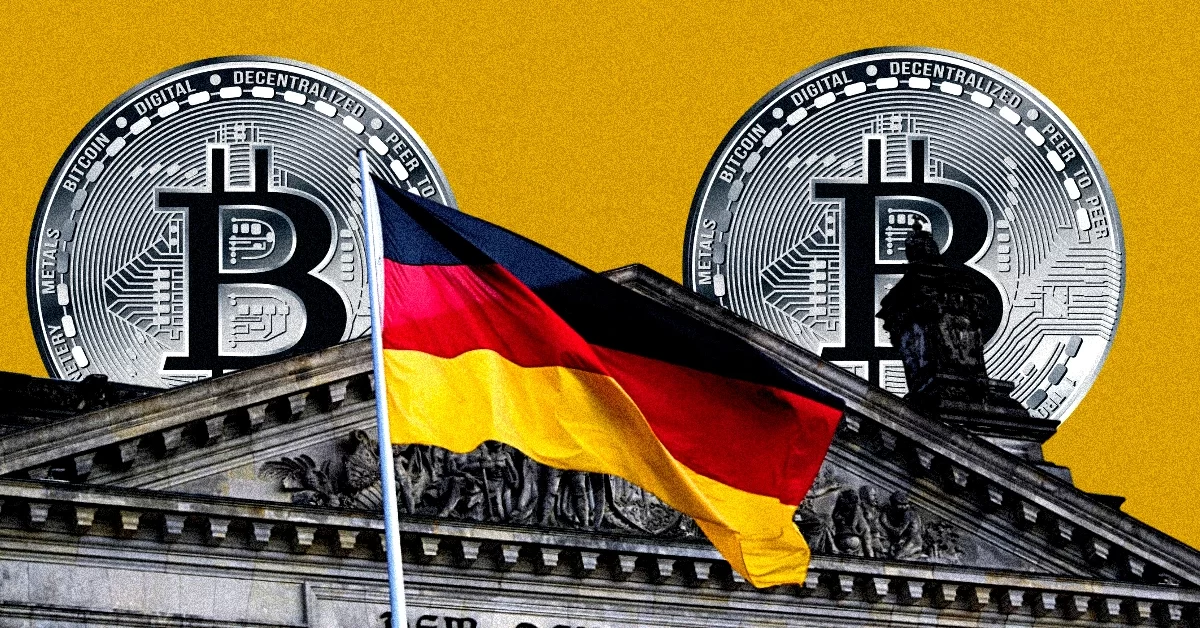
Bitcoin in Deutsche Bank of Germany
Deutsche Bank, one of the largest financial institutions in Germany, has had a complex and evolving relationship with Bitcoin and cryptocurrencies in general. While the bank has shown interest in blockchain technology, its stance on Bitcoin has been cautious and somewhat conservative.
Here are some key points about Bitcoin and Deutsche Bank's position in Germany:
-
Blockchain and Cryptocurrency Interest: Deutsche Bank has acknowledged the potential of blockchain technology, which underpins Bitcoin and other cryptocurrencies. They see blockchain as a transformative technology for the financial industry. However, the bank has historically taken a more conservative approach to Bitcoin itself, largely due to regulatory uncertainty and the volatility associated with cryptocurrencies.

-
Bitcoin Trading and Investment: Deutsche Bank has, in the past, explored offering cryptocurrency-related services, including trading and investment opportunities, but has been reluctant to fully embrace Bitcoin as an investment asset for its clients. They have expressed concerns about the lack of regulation and the high risks associated with digital currencies.
-
Deutsche Bank's Report on Cryptocurrencies: Deutsche Bank has published reports in which they discuss the future of digital currencies. In one such report, the bank predicted that cryptocurrencies, including Bitcoin, could play a significant role in the financial system over the next few years, but they also cautioned that the future of digital currencies is uncertain, given regulatory challenges and volatility.
-
Regulatory Environment: In Germany, the regulatory environment surrounding Bitcoin and cryptocurrencies is more developed compared to other countries. The German Federal Financial Supervisory Authority (BaFin) regulates crypto assets, and cryptocurrencies like Bitcoin are treated as units of account or financial instruments. Deutsche Bank, being a major financial institution in Germany, must adhere to these regulations, which may explain its cautious approach to offering Bitcoin-related services.
-
Recent Developments: Deutsche Bank has occasionally expressed openness toward cryptocurrencies, especially as institutional interest in digital assets has grown. However, it is important to note that as of now, the bank has not fully embraced Bitcoin or other cryptocurrencies as part of its core business model.
In summary, Deutsche Bank in Germany remains cautious and conservative regarding Bitcoin, but its interest in blockchain technology and the broader digital asset space indicates that the bank may continue to evolve its position as the regulatory and market environment develops.
While Deutsche Bank has been cautious about fully embracing Bitcoin, there are several potential advantages for both Bitcoin and Deutsche Bank if the bank were to engage more actively with Bitcoin or cryptocurrencies in Germany. Here are some of the advantages that could arise for 
Bitcoin, Deutsche Bank, and the broader financial system:
Advantages of Bitcoin for Deutsche Bank:
-
Diversification of Investment Options: By integrating Bitcoin or offering cryptocurrency-related services, Deutsche Bank could diversify its investment product offerings. This would allow the bank to cater to clients interested in alternative assets, especially as institutional and retail interest in digital currencies continues to rise.
-
Access to a Growing Market: Cryptocurrencies, including Bitcoin, have gained significant popularity worldwide, and their usage is growing. By tapping into this growing market, Deutsche Bank could benefit from a new revenue st
 ream, as many investors are now seeking exposure to digital assets.
ream, as many investors are now seeking exposure to digital assets. -
Blockchain Innovation and Efficiency: Bitcoin operates on blockchain technology, which can offer more efficient and secure ways to transfer value. If Deutsche Bank adopts blockchain-based solutions, it could enhance its own operations by reducing transaction costs, improving transparency, and increasing speed in cross-border payments, settlements, and trading.
-
Institutional Adoption of Crypto Assets: As institutional interest in Bitcoin and other cryptocurrencies grows, Deutsche Bank could position itself as a trusted intermediary for institutional investors looking to gain exposure to digital assets. This could also involve offering Bitcoin custody services or facilitating crypto-related transactions.
-
Hedge Against Inflation and Currency Depreciation: Bitcoin is often described as a "store of value" or "digital gold" because it can serve as a hedge against inflation and currency depreciation. Deutsche Bank could offer Bitcoin as a hedge option for its clients, particularly in times of economic instability or uncertainty.
-
Regulatory Clarity in Germany: Germany has been relatively proactive in establishing regulations around cryptocurrencies. In 2019, Germany became the first country in the European Union to recognize Bitcoin and other cryptocurrencies as legal assets. This regulatory clarity gives Deutsche Bank a more stable environment to experiment with or introduce Bitcoin-related services, potentially reducing the risks involved in offering crypto products.
Advantages for Bitcoin with Deutsche Bank's Involvement:
-
Increased Legitimacy and Trust: Deutsche Bank's involvement in the Bitcoin ecosystem could bring greater legitimacy to Bitcoin as a financial asset. As a well-established and trusted global financial institution, Deutsche Bank's endorsement would likely help attract traditional investors who might otherwise be skeptical of the volatility and risks associated with Bitcoin.
-
Better Access to Traditional Finance: As a major financial institution, Deutsche Bank has deep connections with traditional financial markets. By working with Bitcoin, the bank could bridge the gap between the cryptocurrency world and traditional finance, creating easier access for Bitcoin holders to interact with traditional banking services.
-
Institutional Support and Adoption: Institutional adoption is critical for Bitcoin's long-term success. Deutsche Bank's potential participation in the Bitcoin market would likely signal to other banks, corporations, and institutional investors that Bitcoin is becoming a more widely accepted and legitimate asset class.
-
Improved Security and Custody Services: One of the main challenges in the Bitcoin ecosystem is ensuring the security of holdings and transactions. With Deutsche Bank's expertise in safeguarding assets, the bank could offer robust Bitcoin custody services, making it easier and safer for investors to hold Bitcoin in a secure environment.
-
Integration with Existing Financial Products: Deutsche Bank could integrate Bitcoin with its existing financial products, such as savings accounts, wealth management services, or payment systems. This integration would make it easier for customers to buy, sell, and hold Bitcoin alongside traditional assets.

While there are potential advantages to Deutsche Bank engaging with Bitcoin, there are also significant disadvantages and challenges that could arise for both the bank and the broader financial system. Here are some of the key disadvantages for Deutsche Bank in Germany when dealing with Bitcoin:
Disadvantages of Bitcoin for Deutsche Bank:
-
Regulatory Uncertainty: Despite Germany having relatively clear regulations regarding cryptocurrencies, the global regulatory landscape for Bitcoin is still in flux. New regulations or changes to existing laws could impact the viability of offering Bitcoin-related services. Deutsche Bank could face legal challenges or higher compliance costs if regulations tighten or become more complex, especially if other countries' regulatory stances differ.
-
Volatility and Risk Management: Bitcoin is known for its extreme price volatility. This presents a significant risk for any bank offering Bitcoin-related products or services. If Deutsche Bank were to offer Bitcoin to its clients, it could face reputational damage if the price of Bitcoin experiences a sharp decline, potentially leading to large losses for investors and causing concerns over the bank's ability to manage these risks effectively.
-
Security Concerns: While Bitcoin transactions themselves are secure, the platforms used to store and manage Bitcoin (including exchanges and wallets) can be vulnerable to hacking. Deutsche Bank would need to inves
 t heavily in cybersecurity to safeguard Bitcoin holdings and transactions. If there were a security breach or hack, it could damage the bank's reputation and lead to financial losses for clients.
t heavily in cybersecurity to safeguard Bitcoin holdings and transactions. If there were a security breach or hack, it could damage the bank's reputation and lead to financial losses for clients. -
Limited Market Understanding: Despite growing interest, Bitcoin and the broader cryptocurrency market are still relatively new, and many traditional financial institutions lack deep expertise in the area. Deutsche Bank would need to invest significant resources in educating its staff, developing the necessary infrastructure, and understanding the nuances of the cryptocurrency market to avoid costly mistakes or mismanagement.
-
Reputation and Public Perception: Bitcoin's association with illegal activities (such as money laundering, ransomware, and the dark web) and its potential use for tax evasion could tarnish Deutsche Bank's reputation. While the bank could mitigate these risks by adhering to strict regulatory compliance, engaging with Bitcoin could still invite scrutiny from both regulators and the public, potentially undermining its brand.
-
Competition with Traditional Banking: Offering Bitcoin-related services could put Deutsche Bank in competition with decentralized finance (DeFi) platforms and other blockchain-based financial services. These decentralized alternatives bypass traditional banking systems, making it harder for Deutsche Bank to maintain its competitive advantage. Additionally, if the adoption of Bitcoin grows, it could reduce demand for traditional banking services, such as currency exchange or cross-border payments, as Bitcoin can facilitate these transactions without the need for intermediaries.
-
Legal and Compliance Challenges: The decentralized nature of Bitcoin makes it more difficult to track transactions and enforce laws. Compliance with anti-money laundering (AML) and know your customer (KYC) regulations could be more challenging when dealing with Bitcoin. If Deutsche Bank were to offer Bitcoin services, it would need to ensure that it could monitor and prevent illicit activities, adding complexity to its operations and increasing the risk of fines or penalties if compliance is not maintained.
-
Integration with Traditional Banking Systems: Integrating Bitcoin into Deutsche Bank's existing financial products and systems could be difficult. The bank's infrastructure is designed for traditional fiat currencies, and incorporating Bitcoin could require significant investment in new technology. The lack of seamless integration between Bitcoin and traditional banking systems could lead to inefficiencies and higher operational costs.
-
Environmental Concerns: Bitcoin mining requires a significant amount of energy, leading to environmental concerns due to the carbon footprint associated with the process. If Deutsche Bank were to support Bitcoin, it could face criticism from environmentally conscious stakeholders or investors who view the environmental impact of Bitcoin as unsustainable.
-
Client Education and Market Adoption: Many traditional investors are still unfamiliar with Bitcoin, and offering cryptocurrency services could require a major effort in terms of educating clients about the risks and complexities of investing in digital assets. Some clients may be wary of adopting new technology or could be reluctant to invest in something as volatile and speculative as Bitcoin, limiting the appeal of Bitcoin-related services.
Disadvantages for Bitcoin with Deutsche Bank's Involvement:
-
Increased Centralization: Bitcoin is often praised for its decentralized nature, which allows it to operate without a central authority. If a major bank like Deutsche Bank were to dominate the Bitcoin space, it could reduce the decentralization and ethos of the cryptocurrency, potentially alienating some of its core supporters who prefer the idea of a decentralized financial system.
-
Corporate Influence on Bitcoin: Involving a large financial institution like Deutsche Bank in Bitcoin's ecosystem could lead to greater corporate control over the digital currency. This could undermine the principles of open-source and peer-to-peer decentralized networks, creating concerns about potential manipulation, increased fees, and the concentration of wealth.
-
Trust in Traditional Finance: If Deutsche Bank were to significantly influence Bitcoin's adoption, it could potentially reduce the trust that cryptocurrency users have in decentralized networks. Many Bitcoin advocates are wary of traditional financial institutions and their control over financial systems. The bank’s involvement could lead to concerns that Bitcoin's decentralized, open nature would be compromised for profit-driven motives.
As of now, Deutsche Bank has not fully embraced Bitcoin or other cryptocurrencies in the same way that some financial institutions have. However, the bank has shared its stance and policy regarding digital assets, which reflects its cautious approach, balancing innovation with 
regulatory concerns. While there isn't a specific public "Bitcoin policy" laid out by Deutsche Bank, several key points can be summarized based on their statements and actions.
1. Cautious Approach to Bitcoin:
Deutsche Bank has historically maintained a cautious approach to Bitcoin and other cryptocurrencies, citing the high volatility, regulatory uncertainty, and potential for misuse (e.g., money laundering or illegal activities). The bank has not offered Bitcoin trading or investment directly to customers, nor has it integrated cryptocurrencies into its core offerings.
2. Blockchain Technology Focus:
While Bitcoin itself has been a point of caution, Deutsche Bank has shown interest in blockchain technology, the underlying infrastructure behind Bitcoin. The bank recognizes blockchain’s potential to improve efficiencies in various financial services, such as payments, securities trading, and settlements. They have published reports analyzing the impact of blockchain on the financial sector and have been exploring its applications beyond cryptocurrencies.
3. Regulatory Compliance:
In Germany, cryptocurrencies are regulated by the Federal Financial Supervisory Authority (BaFin), which treats Bitcoin and other cryptocurrencies as financial instruments. Deutsche Bank adheres to these regulations, which means they are cautious about offering Bitcoin-related products until a clearer and more robust regulatory framework is in place. BaFin requires any institution offering services related to cryptocurrencies to follow strict AML (Anti-Money Laundering) and KYC (Know Your Customer) procedures, and Deutsche Bank would need to comply with these standards if they were to enter the crypto market.
4. Cryptocurrency Investment Services:
Deutsche Bank has not yet offered direct services for buying, selling, or holding Bitcoin for retail or institutional clients. However, the bank has considered entering the crypto space in some capacity, as indicated by some reports. For example, Deutsche Bank has looked into cryptocurrency trading desks, which would allow it to serve institutional investors with crypto-related services, but the bank's hesitation remains due to concerns about volatility, security, and regulatory challenges.
5. Risk Management and Volatility:
Deutsche Bank has expressed concerns about the high volatility and speculative nature of Bitcoin. This risk factor is particularly relevant for institutional investors and retail clients looking for safe, long-term investments. While Bitco
6. ESG Concerns (Environmental, Social, and Governance):
Bitcoin mining has been criticized for its high energy consumption and associated environmental impact. This could be a significant issue for Deutsche Bank, especially as the financial industry moves towards more ESG-friendly (Environmental, Social, Governance) investment practices. The environmental impact of Bitcoin could conflict with the bank's sustainability goals and its investors’ increasing focus on socially responsible investments.
7. Bitcoin as a Store of Value:
Deutsche Bank has analyzed Bitcoin as a potential store of value, similar to gold, especially in times of economic uncertainty. While this is an area of growing interest for institutional investors, Deutsche Bank's official stance remains that Bitcoin is still a speculative asset and not yet a widely accepted store of value in the traditional sense. The bank has emphasized the importance of regulation in determining Bitcoin's legitimacy as a mainstream financial asset.
8. Institutional Adoption:
In its research and reports, Deutsche Bank has acknowledged the growing institutional interest in Bitcoin. The bank has noted that large institutions, including hedge funds and asset managers, are increasingly exploring Bitcoin as an alternative investment asset. However, the bank has remained cautious about offering direct exposure to retail investors, preferring to monitor the market's evolution before offering Bitcoin-related services.
Summary of Deutsche Bank's Policy on Bitcoin:
-
Cautious Stance: Deutsche Bank remains cautious about directly offering Bitcoin products or trading services due to concerns about volatility, security, and regulatory uncertainty.
-
Blockchain Enthusiasm: The bank is more focused on the potential of blockchain technology and its applications in the broader financial industry rather than on cryptocurrencies themselves.
-
Regulatory Compliance: The bank adheres strictly to the regulatory environment in Germany, with any potential crypto offering needing to comply with BaFin regulations, including AML and KYC requirements.
-
Risk and Security Concerns: The bank is hesitant to offer cryptocurrency services due to Bitcoin's volatility and the security challenges that come with holding and trading digital assets.
-
No Direct Bitcoin Investment Services: As of now, Deutsche Bank has not offered direct investment or trading in Bitcoin or other cryptocurrencies for retail clients.
-
Environmental Impact Concerns: The high energy consumption of Bitcoin mining and its environmental impact are concerns for Deutsche Bank, which may affect its willingness to fully embrace cryptocurrency.
Future Outlook:
It is possible that Deutsche Bank’s policy on Bitcoin could evolve over time as the regulatory environment becomes clearer and institutional interest in digital assets grows. However, the bank’s cautious approach suggests that it will take a careful, measured stance before diving fully into the world of Bitcoin and cryptocurrencies.
In the meantime, the bank is more likely to focus on blockchain technology and explore ways to innovate in the broader digital asset space without directly engaging with volatile cryptocurrencies like Bitcoin.
Posted on 2025/04/09 09:36 AM
